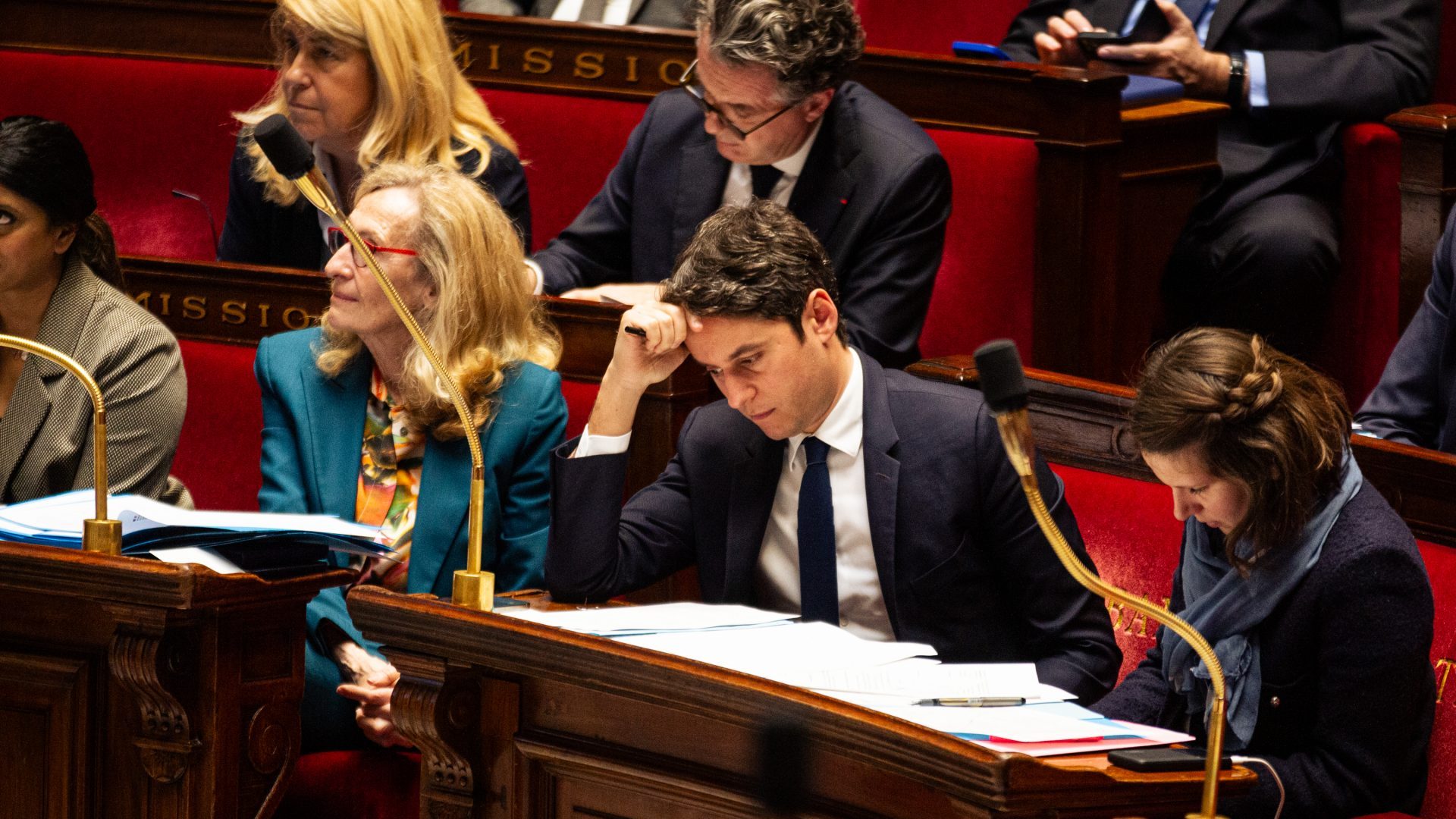“No head of government anywhere in the world has to face this sort of regular pressure and many go to great lengths to avoid it”, Margaret Thatcher once wrote about Prime Minister’s Questions. “No head of government, as I would sometimes remind those at summits, is as accountable as the British Prime Minister.”
She was right. PMQs may often be frustrating to watch, and many consider it to be nothing but a shouting match encouraged by braying backbenchers, but it is both a unique format and one with many purposes.
This may be why France has decided to trial bringing a similar format to its Parliament. As of this week, Prime Minister Gabriel Attal will be appearing at the Assemblée Nationale every Wednesday for 45 minutes, until the end of May. Since France doesn’t share Britain’s opposition system, Attal will instead take one question from each of the parliament’s ten groups.
It is an interesting move, and one that has already proven controversial among French politicians. Though a government source told le Monde that their goal was to “boost interest” in parliamentary sessions, Green MP Cyrielle Chatelain expressed worries that it would “end up as a kind of Attal show”.
The president of the government-affiliated MoDem group, on the other hand, complained that it reflected a “very vertical vision” of power. It is an astute argument: the real point of PMQs in Britain is, after all, not really about what goes on inside the chamber of the House of Commons. By the time the PM stands up, most of the work has already been done.
As Tom Hamilton and Ayesha Hazarika wrote in their book on the topic, Punch & Judy Politics, “In 1975, MPs started tabling open questions, enabling them to ask supplementary questions on whatever they wanted, introducing a new element of both surprise and topicality.”
“In 1979, the new Prime Minister, Margaret Thatcher, announced that she would answer all the questions at PMQs herself, instead of transferring some questions on given issues to the Cabinet ministers responsible for those issues.”
What this meant in practice was that No10 had to always be aware of everything going on in government departments. Before every session, aides had to effectively go around Whitehall and ask everyone about what had gone right and what had gone wrong that week, as the Prime Minister could and probably would be asked about it.
As Thatcher wrote in her memoirs, “it was a good test of the alertness and efficiency of the cabinet minister in charge of the department whether information arrived late – or arrived at all; whether it was accurate, wrong, comprehensible or riddled with jargon.”
PMQs was useful because it held the PM accountable, sure, but it also made the whole government accountable to the PM. Is this why Macron and Attal have decided to bring it to the Assemblee Nationale? It may be cynical to think so, but it wouldn’t be surprising.
Still, what remains to be seen is what it will do to the other parties. Because there is no dedicated leader of the opposition over the Channel, various parliamentary groups may find that having a singular question every week, due to be answered in two minutes or less, may not be all that effective.
What could help, however, would be to team up with other parties if and when they are aligned on an issue, in the same way that, say, Keir Starmer may choose to ask multiple questions on one burning topic. PMQs can help the governing party run a tighter ship, but it may also make its opponents work more closely together.
Is this what will happen in the end? There is no way of knowing, but it will be interesting to check back in at the end of next month. As Hazarika and Hamilton’s book explains, Prime Minister’s Questions evolved over time, sometimes by accident, and its current form was not created on purpose.
Watching what France does with it, and whether it chooses to make it a regular feature of the parliamentary calendar, should be an interesting exercise for Britain as well. If PMQs didn’t exist, would we invent it? Well, we’re about to find out.




